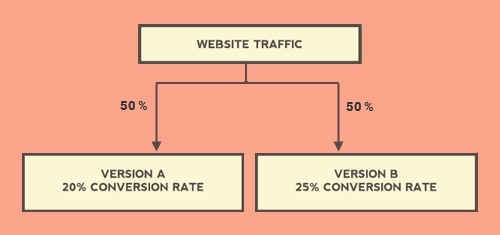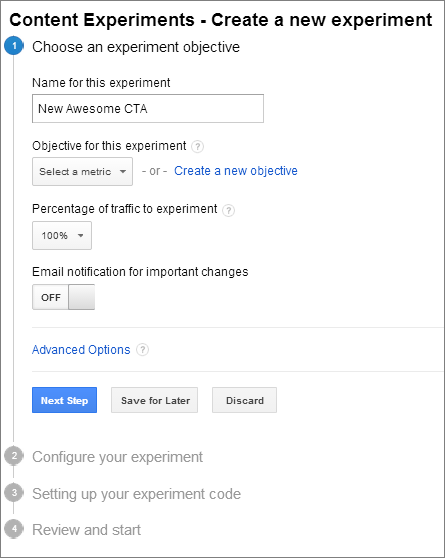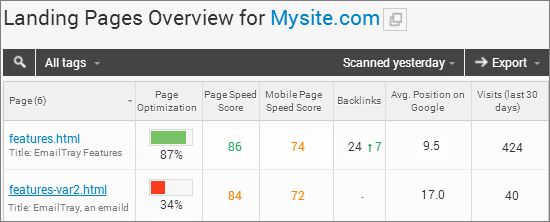If you’ve been in business for more than 2 days, you already know that the key to success is to understand the needs of your target audience. If you own a crystal ball, great for you! You can always be informed about what your audience wants and how they feel when interacting with your site. If not, A\B testing (also called ‘split testing’) exists to bring knowledge into your guessing.
A/B testing is a great way to find out what type of proposal works best with your audience. To perform an A/B test, you set up two variants of a landing page and send an equal amount of traffic to each. Tested pages should be online simultaneously, so you can be sure there won’t be any variables that may change between today and tomorrow. Then you measure the level of conversions for each landing page, and determine the winner according to which one generates the most conversions.

Why should I test?
There are two ways to earn more money from your online business. The first is to drive more traffic, and the second is to convert more visitors into customers.
When you double your conversion rates, then you cut your cost per acquisition in half.
That is why you should test.
What should I test?
- The headline. Usually the main headline of the page contains your product core value proposition. The headline should correspond with the page Title and Description (if the page is meant for organic traffic) or your ad copy (if the visitors come from paid search or ads).
- The call to action (CTA). The call to action represents your page’s goal. The CTA is your final instruction to your visitors. Great CTAs encourage people to act right away and don’t give people much of an option to wait and think about it.
- Required fields in your web form. Try varying the amount of information you try to gather with any form on your landing page. You may find it best to minimize the number of fields that visitors are required to complete.
- The copy length. For some products and services, more product details may be important for decision making process. Test what copy length works best for you.
- Design. Button color, arrows, hero shots, contrast and other design decisions your designer is great at. Test what landing page design brings you more conversions.
How can I track results?
1. Use Google Analytics
With Google Analytics you can test what landing page variant performs best. You can conduct your experiments in Google Analytics from the reporting sidebar. Select Behavior, then Experiments. Select Create Experiment and follow Google’s instructions.

If you are testing changes to a page that already exists, use it as the Original (Control page). For entirely new content, pick the URL you will eventually want to use for the winner. Now you will only need to install the experiment code snippet just inside the <head> tag of your Original Page.
2. Use the ‘Landing Pages Overview’ report
If you are testing landing pages that bring you organic traffic, than you can get a quick overview with the help of the Web CEO Landing Pages Overview report. Check how well your landing pages load on mobile devices, compare their avg. position on Google and know how much traffic they get.

If you haven’t started yet, consider running your first A/B test as soon as possible. It will help you to optimize your conversions and outrank your competitors.
Glossary
Control Page
Your control page is your original page, your A page. The one that existed first that you are going to start running tests against.
Landing Page
Any web page that a visitor can arrive at and perform your desired action is a landing page. Usually you will have different landing pages for organic traffic and for visitors who come via advertising.
Winner Page
A page that gets a higher conversion rate during the A/B test is called a winner page. It proves a testing hypothesis and may be used for further experiments (improvements).
From: https://www.webceo.com/blog/ab-testing-easy-abc-improve-landing-page-conversions/#more-1937
A/B Testing as easy as ABC: Improve Your Landing Page Conversions
没有评论:
发表评论